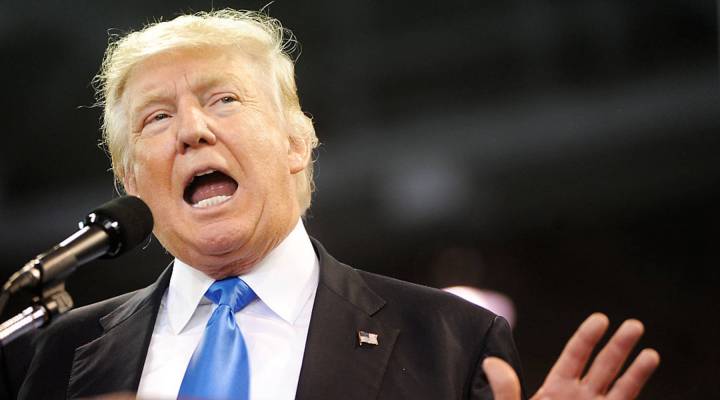
Here’s the deal with Donald Trump and self dealing

The Washington Post has been doing some digging into the Trump Foundation, the charity Donald Trump set up back in 1987. According to the paper, tax returns and court documents Trump has used more than $250,000 of the foundation’s money to settle legal disputes involving his businesses, a practice that could constitute what’s known as self dealing.
What does that mean, exactly?
Let’s say a lawyer representing an estate is supposed to sell a house from the estate’s assets. But, instead, he sells it to himself. Or a stock broker, knowing her client is about to unload a big chunk of stock and drive down the share price, holds off on selling her client’s shares until she sells her own.
Self-dealing is “doing something that’s going to benefit yourself, when you’re supposed to be acting as a fiduciary for another,” said Daniel Ostas, who teaches business ethics at the University of Oklahoma.
Fiduciary is just a fancy word for “trusted person,” Ostas said. In the case of the Trump Foundation, Donald Trump would be a fiduciary, acting on behalf of the charity and its donors.
In 1967, Congress passed specific tax regulations for private foundations, saying they can’t use their assets to benefit foundation insiders. But according to the Post, Trump businesses twice settled lawsuits by agreeing to make donations to charity.
“Now if Trump had just written the check to the charity, no problem,” said law professor Lloyd Mayer at Notre Dame.
According to the Post, the checks came from the Trump Foundation.
“That’s clearly self-dealing — using the charity’s assets to benefit himself and his business interests,” Mayer said.
The Trump campaign did not respond to a request for comment, and has not disputed the facts in the Post’s story.
Because private foundations benefit from their tax-exempt status, they’re held to a certain standard, said attorney Beth Kingsley, a partner with the law firm Harmon, Curran, Spielberg and Eisenberg.
“They’re not private business slush funds,” she said. “They are organizations that are supposed to have a mission to further the public good in some way.”
If the IRS finds wrongdoing, Kingsley said, a self-dealer can be ordered to give the money back to the foundation and pay a tax penalty.
There’s a lot happening in the world. Through it all, Marketplace is here for you.
You rely on Marketplace to break down the world’s events and tell you how it affects you in a fact-based, approachable way. We rely on your financial support to keep making that possible.
Your donation today powers the independent journalism that you rely on. For just $5/month, you can help sustain Marketplace so we can keep reporting on the things that matter to you.












